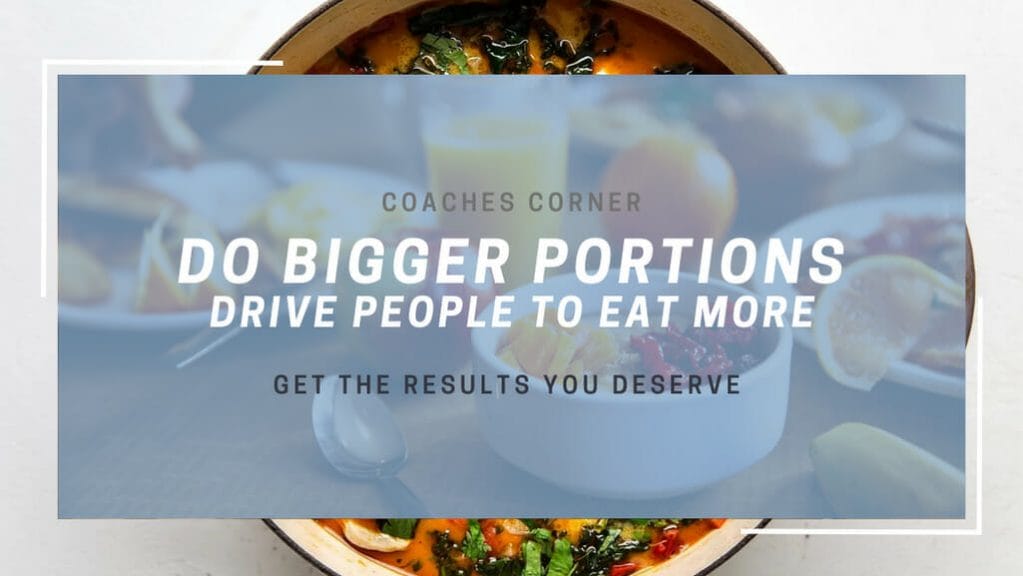Do bigger portions drive people to eat more?
The research on that is clear.
It makes sense: Many people find it hard to leave food on their plates.
But what’s the difference between those who leave a restaurant with a doggy bag… and those who finish every morsel?
Researchers from Penn State University conducted a study to gain insights. Here is what they found…
Yes, people ate more when they were served larger portions. (This confirmed previous research.)
Participants who ate faster, and in larger bites, ate more overall.
The “large portion effect” was amplified for these people—they were more likely to overeat than those who ate more slowly and took smaller bites.
Portion size didn’t have an effect on how fast people ate or the size of their bites.
In fact, these qualities were pretty consistent for each individual. That suggests they’re somewhat instinctive.
Takeaways… No, not that kind 😉
- 1. Food gobbling makes overeating way more likely.
Bringing attention to eating speed and bite size can be one of the best ways to help the process of avoiding overeating.
Try it: How fast are you eating?
Do you tend to scarf down a meal down as fast as possible? Or are you a more leisurely eater? Are you eating big chunks of food? Or taking smaller bites? - Portion size matters.
If you want to reduce your energy intake, putting a smaller portion on your plate is probably the most reliable way.
Likewise, an energy surplus (gain!) are more likely to be successful with BIG portions.
Of course, there are times when there’s not much you can do to reduce portion size (like when you’re out at a restaurant).
In that case… - Enhance slow eating with other strategies.
Eating slowly can be an awesome tool.
It helps you to taste and savour food, and often results in eating smaller portions without even trying.
The authors of this study point out that changing how fast you eat can be really hard (also something we have heard many many many times before).
That’s because it requires conscious effort—compared to just eating how you’ve become accustomed to.
One thing to try putting it into action…
One approach that can help: Instead of simply trying to “stop eating so fast,” clients can practice other behaviours that cause them to slow down.
- Put your fork down between bites
- Take a breath or two before you take your next bite
- Take your typical bite and cut it in half each time
- Take a sip of water between bites
- Savour and taste food.
- Don’t take put more food on your fork until you have finished chewing and swallowing the last.
These approaches help them focus on taking action versus stopping an action. And that can often be easier to do.
What is one thing you can do right now that your future self will thank you for?
Want help becoming the healthiest, fittest, and happiest version of yourself?
Most people know that regular exercise and eating well is important for looking and feeling better. Yet they need help applying that knowledge in the context of their busy, sometimes stressful lives. Over the past 10 years, we’ve used our coaching methods to help over 1,000 clients lose fat, get stronger, and improve their health… for the long term… no matter what challenges they’re dealing with.
If you’re ready to change your body, and your life, with help from some of the country’s best coaches, this is your chance.

